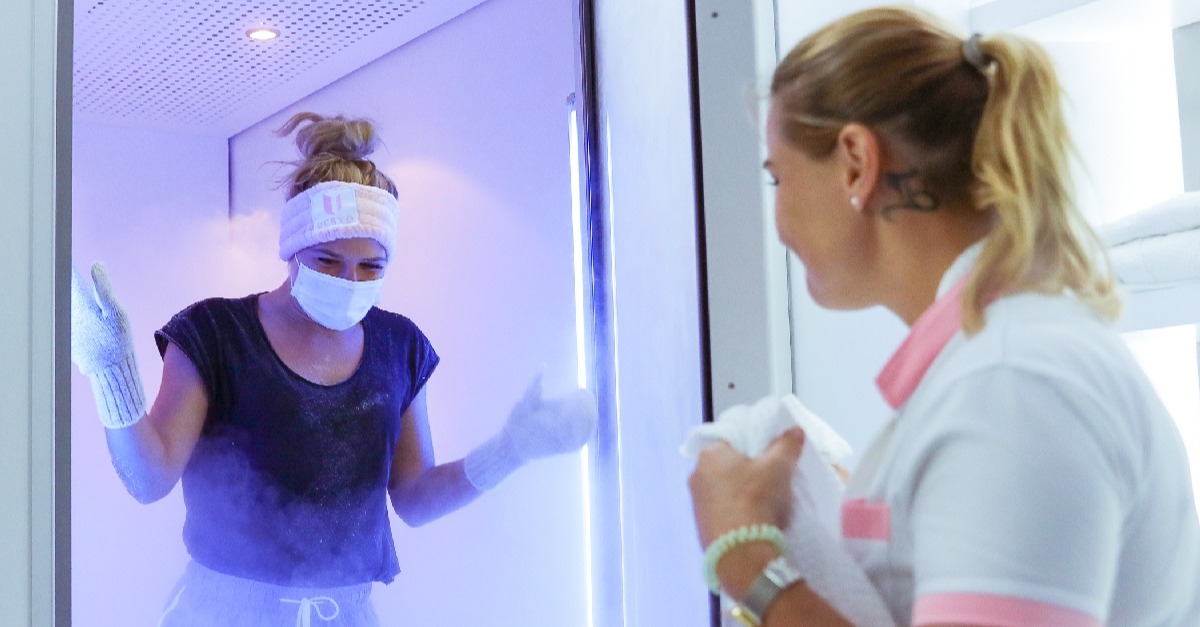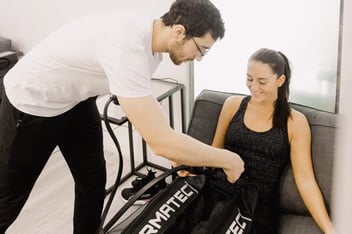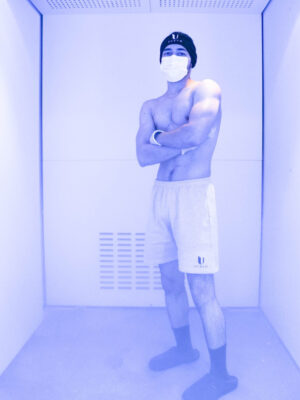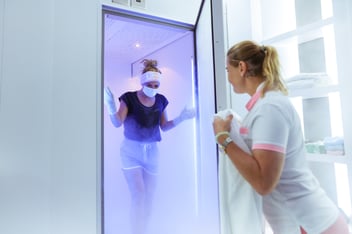Ramadan is a sacred month for Muslims, who fast from dawn to sunset as a way of spiritual purification and self-discipline. Fasting can have many health benefits, such as improving blood sugar levels, cholesterol levels, and inflammation. However, fasting can also pose some challenges, such as dehydration, fatigue, and muscle soreness. That’s why some people may consider cryotherapy as a complementary therapy during Ramadan.
Cryotherapy is a technique that exposes the body to extremely cold temperatures for a few minutes. It can be done in a whole-body chamber, a localized device, or a facial treatment. Cryotherapy has been used for various purposes, such as pain relief, muscle recovery, skin rejuvenation, and mood enhancement. But how can cryotherapy help you during Ramadan? Here are some possible benefits:
Hydration
One of the main risks of fasting is dehydration, which can affect your mood, energy, and cognitive function. Drinking enough water and fluids after breaking your fast is essential, but you can also boost your hydration with cryotherapy. Cryotherapy can stimulate the release of anti-diuretic hormone (ADH), which helps the body retain water and electrolytes. This can prevent excessive urination and dehydration, especially during the hot summer months.
Energy
Fasting can make you feel tired and sluggish, especially in the first few days of Ramadan. You may also experience headaches, dizziness, and low blood pressure. Cryotherapy can help you feel more energized and alert by activating the sympathetic nervous system, which increases your heart rate, blood pressure, and oxygen delivery. Cryotherapy can also trigger the release of endorphins, which are natural painkillers and mood boosters. These effects can help you cope with the physical and mental demands of fasting.
Recovery
Fasting can affect your muscle mass and strength, especially if you don’t eat enough protein and calories. You may also experience muscle soreness and stiffness after exercising or performing daily activities. Cryotherapy can help you recover faster and prevent muscle loss by reducing inflammation, swelling, and oxidative stress6. Cryotherapy can also enhance blood flow and nutrient delivery to the muscles, which can promote healing and growth.
Skin
Fasting can have both positive and negative effects on your skin. On one hand, fasting can improve your skin health by lowering insulin levels, which can reduce acne and inflammation. On the other hand, fasting can also cause your skin to become dry, dull, and prone to wrinkles due to dehydration and lack of nutrients. Cryotherapy can help you improve your skin appearance and texture by stimulating collagen production, which can increase skin elasticity and firmness. Cryotherapy can also reduce pore size, redness, and pigmentation by constricting blood vessels and reducing blood flow to the skin.
Tips and Precautions
Cryotherapy can be a safe and effective therapy for most people, but it is not without risks and limitations. Here are some tips and precautions to keep in mind before trying cryotherapy during Ramadan:
- Consult your doctor before starting cryotherapy, especially if you have any medical conditions, such as diabetes, heart disease, high blood pressure, or pregnancy.
- Do not do cryotherapy while you are fasting, as it can lower your blood sugar levels and cause hypoglycemia. The best time to do cryotherapy is after breaking your fast or a few hours after your meal has been digested.
- Do not do cryotherapy more than once a day, and limit your sessions to no more than three minutes. Excessive exposure to cold can cause frostbite, nerve damage, and hypothermia.
- Wear appropriate clothing and protective gear during cryotherapy, such as gloves, socks, shoes, and a mask. Avoid wearing any metal or wet items, as they can conduct cold and cause burns.
- Drink plenty of water and fluids before and after cryotherapy, as it can dehydrate you and increase your urine output. Avoid drinking caffeinated or alcoholic beverages, as they can dehydrate you further and interfere with your sleep.
- Eat a balanced and nutritious diet during Ramadan, with a focus on whole grains, fruits, vegetables, lean protein, and healthy fats. Avoid fried and processed foods, as they can increase inflammation and oxidative stress. Ensure your meals are thoroughly cooked to aid digestion and prevent food poisoning.





